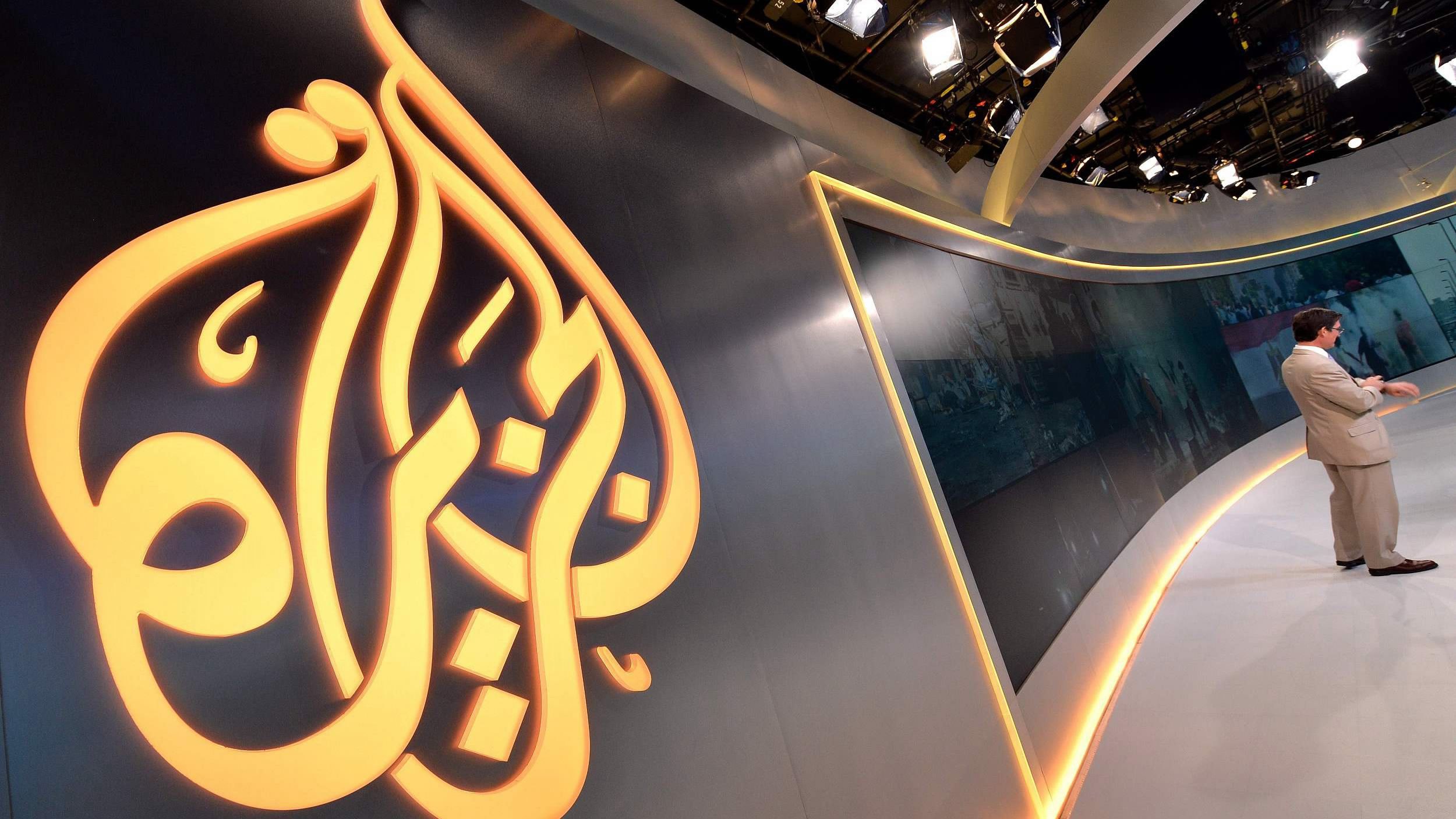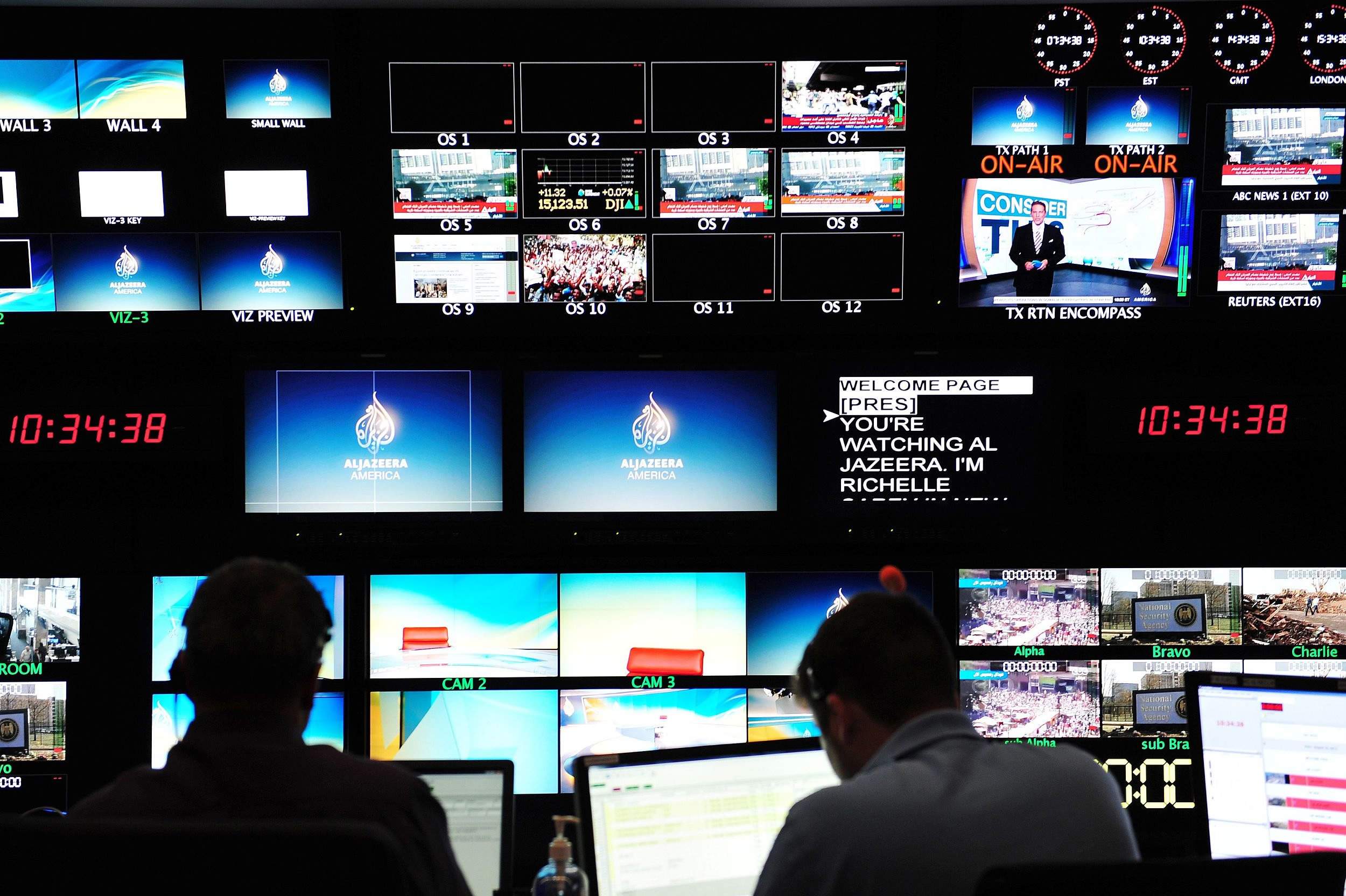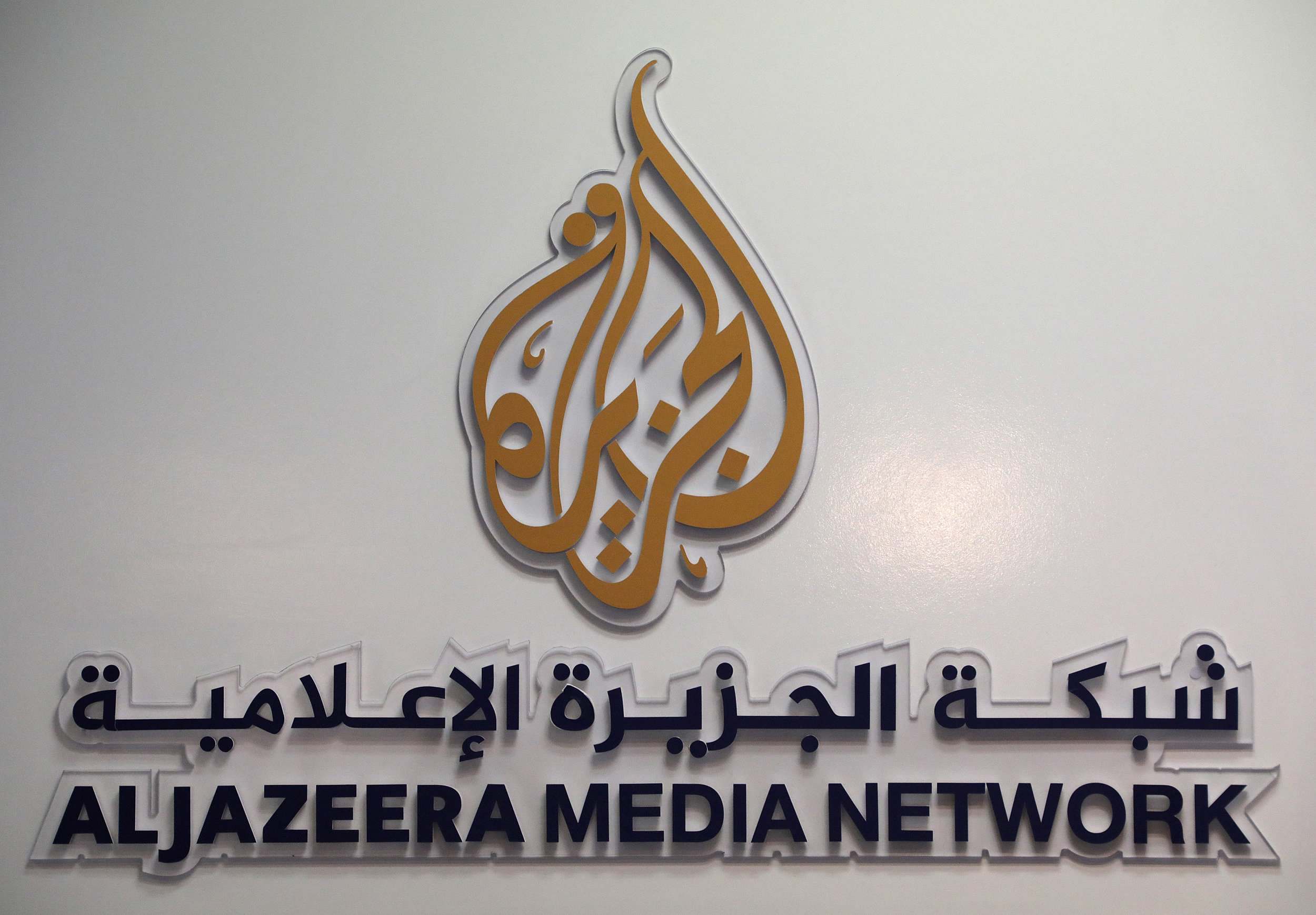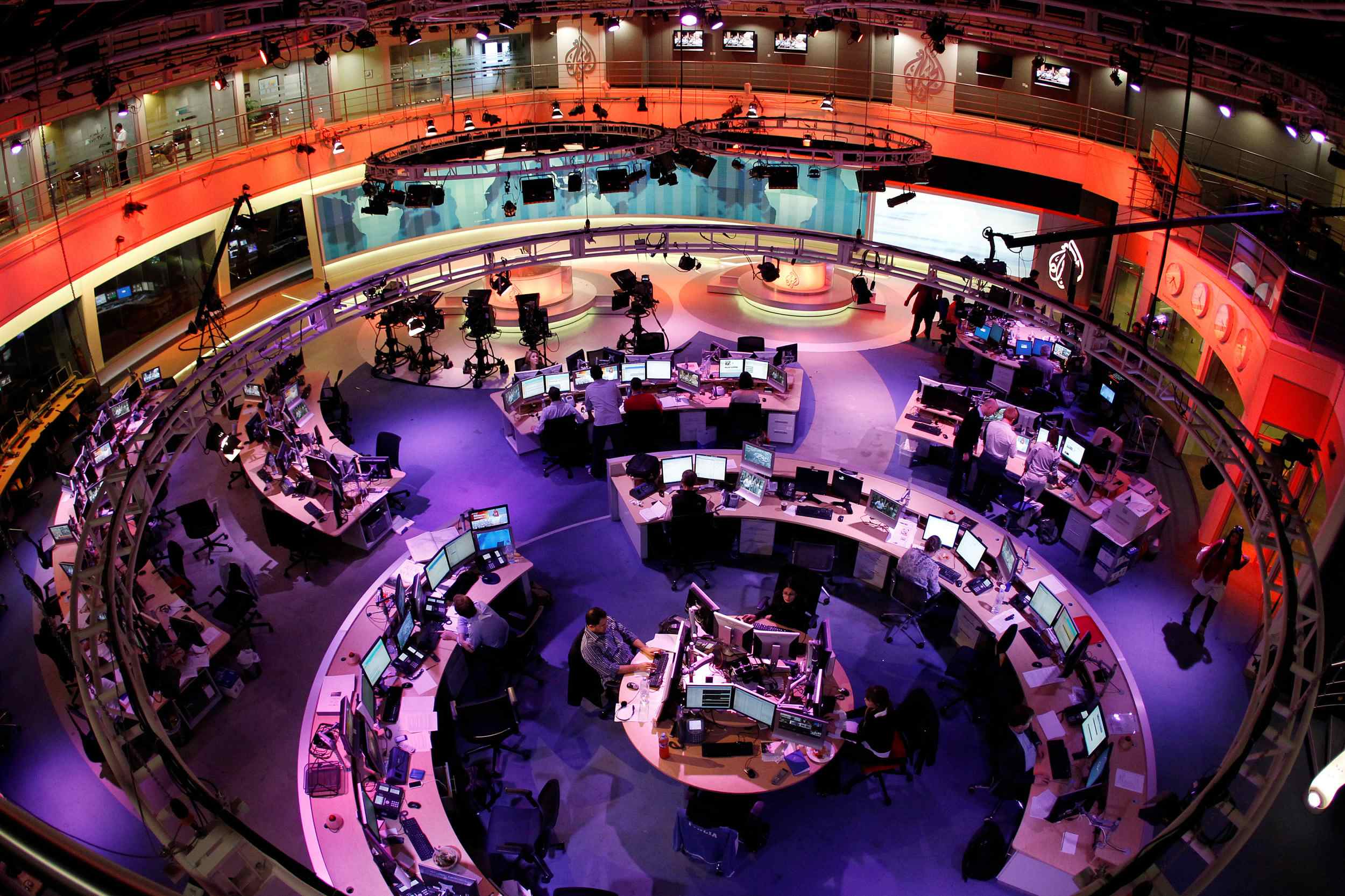Qatar crisis: could this mean the demise of Al Jazeera?

One of the world’s top news channels was dragged into the diplomatic crisis engulfing the Middle East this week when Saudi Arabia and Jordan shut the local offices of Qatar’s state-backed Al Jazeera network, after cutting diplomatic ties with Doha.
Could this spell the end for the TV network? And why was it targeted in the first place? Here are the main issues at stake.

August 16, 2013: The main control room in the new Al Jazeera America television broadcast studio on West 34th Street in New York. /VCG Photo
On Monday, Saudi Arabia, Egypt, Bahrain and the United Arab Emirates announced they were ending diplomatic links with Qatar, accusing it of supporting terrorism.
Riyadh later announced it was closing Al Jazeera’s office and withdrawing its license to operate in the country. Jordan followed suit on Tuesday.
“Al-Jazeera has promoted plots of terrorist groups, supported the Houthi militias in Yemen, and tried to... harm the sovereignty of the Kingdom of Saudi Arabia,” the Saudi Press Agency reported.
Al Jazeera hit back in a statement, calling Riyadh's move “unjustified" and urging it to “respect the freedom of press and allow journalists to continue (to) do their job free of intimidation and threats.”

The logo of Al Jazeera Media Network is seen during the annual MIPCOM television program market in Cannes, France, October 17, 2016. /VCG Photo
The office closures drew condemnation from international media watchdogs.
The New York-based Committee to Protect Journalists urged Riyadh to “immediately reverse” its decision to block the channel.
"The rights to information and to free expression should not be held hostage to diplomatic wrangling between Gulf monarchs," CPJ said.
“Closing Al Jazeera’s bureaux is a political decision that amounts to censoring,” Reporters without Borders (RSF) added in a statement, noting that Saudi Arabia’s move “compounds the country’s already very bad record on free speech and media freedom.”
Saudi Arabia ranked 168th out of 180 countries in the 2017 World Press Freedom Index, RSF pointed out. Egypt was 161st, Jordan 138th and Qatar 123rd.

A still from the footage broadcast on Al-Jazeera television shows Libyans celebrating the arrest of Kadhafi's son Saif al-islam and the partial fall of Tripoli in the hands of the Libyan rebels, August 21, 2011. /VCG Photo
Founded in 1996, Al Jazeera is not only one of the world’s top international news networks -- alongside BBC, CNN and France24 -- but also one of the few not based in the US or Europe, thus offering a different regional perspective. With its unique coverage of the Middle East in Arabic and English, it has amassed millions of viewers and won top media awards.
But while it has repeatedly defended itself as an independent news source, others have accused it of blatant bias. Critics have also pointed to the vast differences between its more Western-style English-language channel, which is perceived to adhere to more traditional non-partisan journalistic standards, versus the Arabic-language service, often seen as unbalanced and propagating the Qatari leadership's view of the world.
Al Jazeera drew international attention with its coverage of the Arab Spring but its criticism of Arab governments and siding with certain groups has antagonized Qatar’s neighbors time and again.
Egypt banned Al Jazeera in 2013 and has detained and prosecuted several of its reporters for “spreading false news” and backing the banned Muslim Brotherhood.
In late May, Saudi Arabia, Bahrain, Egypt and the UAE blocked Al Jazeera websites amid a row over comments allegedly made by Qatar’s emir supporting Islamist groups. Doha blamed the comments on hackers.
With Qatar increasingly coming up against its neighbors, who see it as too close to Iran and the Muslim Brotherhood, Al Jazeera -- seen as Doha’s mouthpiece -- has often been caught in the middle.

The newsroom at the headquarters of the Qatar-based Al Jazeera English-language channel in Doha, February 7, 2011. /VCG Photo
What effect the current crisis will have on Al Jazeera in the long term is still unclear. So far, only a couple of local offices have been closed, but observers are already warning the whole network could be at risk.
Saudi Arabia and its partners have reportedly handed Qatar a list of demands in exchange for a resumption of diplomatic ties, including cutting back Al Jazeera’s operations.
The network was putting on a brave face this week. “This is not the first time that Saudi authorities have imposed such restrictions on Al Jazeera's operations,” it said.
A reporter at Al Jazeera English was also quoted by Reuters news agency as saying: “Everybody is shocked at the escalation but no one thinks the channel will close… It is something the Qataris will not give up."
A well-known UAE-based commentator, Sultan Sooud Al Qassemi, had a more grim view, however, tweeting on Monday: “Qatar's Emir first gesture of good will likely be the shutting of Al Jazeera TV network entirely, which could happen in months if not weeks.”
